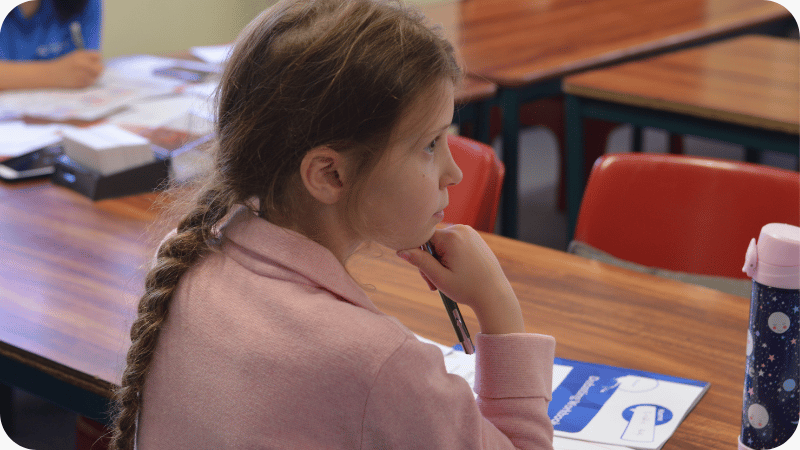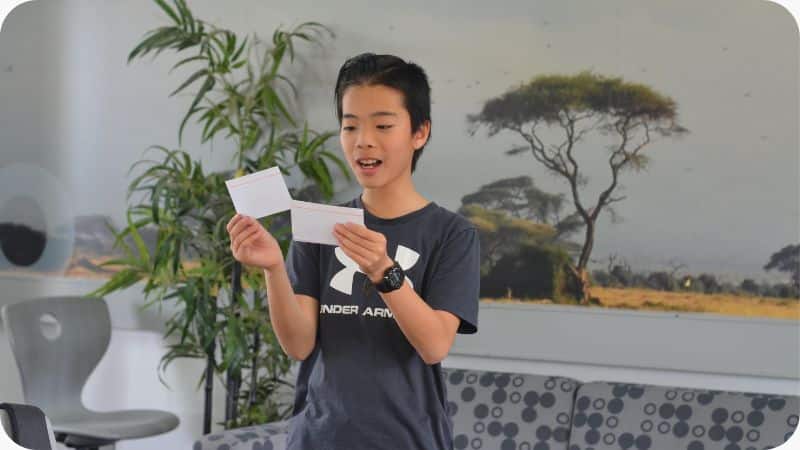How To Interpret Topic Areas for Public Speaking Competitions
8 December 2022
So you’ve signed up for a public speaking competition or you’ve received a speech assignment at school, and you’ve been given a ‘topic area’ that your speech needs to be related to. But what exactly is a topic area and how do you interpret it?
Topic areas are the broad themes that public speaking competitions will use to guide their contestants in writing a speech. These topics can be anything from sports, to current affairs, to history and culture. It’s up to the individual speaker to take these topics and make them personalised and meaningful to them.
When it comes to public speaking competitions, one of the most important things you need to do is interpret the topic area into a personalised topic that has meaning to you. This can be a tricky task, but don’t worry, we’re here to help!
This blog post will teach you everything you need to turn a topic area into an amazing personalised speech that you and your audience will love.
The first step is to understand what the topic area is used for. In most cases, the topic area will be a broad theme that the competition organisers want you to speak about. For example, common topic areas include simple phrases that capture a common human experience.

Examples of Public Speaking Topic Areas
Some speech topic areas may include:
- Real wealth is never measured by money
- The world is a smaller place these days
- If I could change the world
- The meaning of belonging
- The process of discovery
- The importance of leadership
Once you know what the topic area is about, it’s time to start thinking about how you can personalise it to become the perfect speech topic for you. This is where you can get creative!
Turning a broader speech topic area into a speech topic that you love to talk about is an important step that makes the process of giving a speech fun and rewarding. Most topic areas lend themselves to a whole variety of interesting speech topics. You could write a funny speech, a persuasive speech, an informative research-based speech, or one that is tailored to your audience!

Here are some tips to help you personalise your topic:
- Think about your own experiences and how they relate to the topic area.
- Identify a problem that you feel passionately about and how the topic area can help address it.
- Come up with an original angle or perspective on the topic area.
- Think about how the topic area can be interpreted in a unique way.
If nothing jumps out at you straight away, there are a few strategies you can use to distil the broader topic of the competition into a clever interpretation that suits you perfectly. Keep reading to find out what to do to come up with interesting speech topics for your speech competition.

Strategy #1: Analyse the topic
The first step is to break down the topic area into smaller parts. For example, if the topic area is “The world is a smaller place these days”, you could break it down into the following subtopics:
- How technology has made the world smaller
- The pros and cons of a smaller world
- How to adjust to a smaller world

Strategy #2: Get personal
Think about how the topic area affects you personally. For example, if the topic area is “The process of discovery helps us to meet ourselves”, you could interpret it as follows:
- How the discovery process has helped me to understand myself better
- What I have learned about myself through discovery
- How the discovery process can help others to understand themselves better

Strategy #3: Think abstractly
If you’re struggling to come up with a personalised topic, it can be helpful to think about the topic area in an abstract way.
Once you have a personalised topic, the next step is to make the link between your topic and the topic area clear to the judge. This can be done by using keywords from the topic area in your speech. For example, if the topic area is “The world is a smaller place these days”, you could use keywords such as “globalisation”, “connectivity” or “interconnectedness” in your speech. This will help the judge understand how your topic is relevant to the topic area.
Strategy #4: Mindmapping
Mind mapping can be a wonderful tool for coming up with a unique idea for your speech. Mind mapping is a creative process where you map out all your ideas on paper. It can help you brainstorm and make connections between different topics and ideas. So how do you mind map your way towards a great speech idea?
Start by writing down the topic area at the centre of a page. Then draw lines radiating outwards, and start jotting down ideas related to the topic area as they come to you. You can also draw arrows connecting different ideas together to create a network of related topics. This process can help you uncover unexpected connections between different aspects of the public speaking competition topic area and generate unique ideas for your speech.
Strategy #5: Start with an Anecdote
Storytelling is a huge part of human communication. When we tell stories, we can teach lessons and pass on our wisdom in an interesting way that engages all of our listeners in an immersive learning process. When you get assigned a topic area for a public speaking competition, a great strategy is to start telling an anecdote about the topic and see where it takes you. An anecdote is a personal experience that offers an interesting perspective on the topic area. To come up with an anecdote, think about your own experiences that are related to the public speaking competition topic area. Then when you are writing, try to focus on the emotions and details that will help bring the story to life.

Strategy #6: Creative Writing
If you want to go down a creative route and come up with an original interpretation of the public speaking competition topic area, then creative writing can be a great way to do this. Start by brainstorming as many ideas related to the public speaking competition topic area as possible. Then take one idea and write it in the form of a story or poem. This will help you to come up with a unique and creative take on the public speaking competition topic area that can then be used as the basis of your speech.
Strategy #7: Read the news with the topic area in mind
It can be helpful to read the news with public speaking competition topics in mind. This will help you stay up to date with current events, and find inspiration for public speaking ideas. For example, if the public speaking competition topic area is “The benefits and drawbacks of technology”, then you could search for stories on how technology has impacted different people’s lives. Reading stories like this can help you find evidence and personal examples to use in your public speaking competition speech.
How to Interpret Impromptu Speaking Prompts
Finally, it’s essential to be prepared for impromptu speech topics. These are topics that you will be given at the start of the competition, with no prior warning. While they may seem daunting, they are actually a great opportunity to show off your public speaking skills! You can be prepared for this by coming up with potential interpretations of different public speaking topics before the day of the competition. You can do this by breaking the public speaking topics down into their basic components and exploring different meanings that could be found within them. This will help you come up with creative ways to interpret public speaking prompts when they are presented to you so that you can confidently crack the impromptu speech topic on the day.
We hope that this blog post has given you some helpful tips on how to interpret topic areas for public speaking competitions. Good luck!



